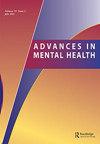Job satisfaction and burnout among peer support specialists: the contributions of supervisory mentorship, recovery-oriented workplaces, and role clarity
IF 1.7
Q3 PSYCHIATRY
引用次数: 14
Abstract
ABSTRACT Objective This study evaluated whether supervisory mentorship contributed to peer support specialists’ job satisfaction and burnout via pathways of role clarity and psychological empowerment after accounting for effects of demographic and workplace characteristics. The study also evaluated whether the recovery-orientation of the workplace contributed to peers’ job satisfaction and burnout. Method Peer support specialists from the United States (N = 117) completed an online questionnaire containing established self-report measures and questions about demographic and workplace characteristics. Results Multiple regression analysis indicated the included variables accounted for 61.9% of variance (p < .001) in job satisfaction and that mentoring from supervisors and a recovery-oriented workplace significantly (ps < .05) predicted job satisfaction. In a second multiple regression analysis, included variables accounted for 28.7% of variance (p < .01) in emotional exhaustion (the emotional component of burnout), where role clarity significantly (p < .05) predicted less emotional exhaustion. Mediation analyses of the cross-sectional data did not support the hypothesis that aspects of the supervisory relationship contributed to job satisfaction and burnout through role clarity and psychological empowerment. Discussion Mentoring from supervisors and the recovery-orientation of the workplace contribute to peers’ job satisfaction after accounting for factors, including role clarity and supervisory working alliance. Improving supervisors’ mentoring skills and adopting a recovery-orientation in mental health settings may bolster peers’ job satisfaction. Increasing peers’ role clarity may reduce burnout. Longitudinal research is needed to clarify associations between factors that may facilitate role clarity and mitigate burnout among peers.同伴支持专家的工作满意度和倦怠:监督指导、康复导向工作场所和角色清晰度的贡献
摘要目的本研究在考虑人口统计学和工作场所特征的影响后,通过角色明晰和心理授权的途径,评估监督指导是否对同伴支持专家的工作满意度和职业倦怠有影响。研究还评估了工作场所的恢复导向是否对同伴的工作满意度和倦怠有影响。方法来自美国的同行支持专家(N = 117)完成了一份在线调查问卷,其中包含已建立的自我报告措施以及人口统计和工作场所特征问题。结果多元回归分析显示,被纳入变量对工作满意度的方差占61.9% (p < 0.001),主管指导和以恢复为导向的工作场所对工作满意度有显著影响(p < 0.05)。在第二次多元回归分析中,包括变量在情绪衰竭(倦怠的情绪成分)中占28.7%的方差(p < 0.01),其中角色清晰显著(p < 0.05)预测更少的情绪衰竭。横断面数据的中介分析不支持管理关系的各个方面通过角色明晰和心理授权对工作满意度和职业倦怠有贡献的假设。在考虑了角色明晰和主管工作联盟等因素后,主管指导和工作场所的恢复导向对同伴的工作满意度有促进作用。提高导师的指导技能和在心理健康环境中采取康复导向可以提高同伴的工作满意度。提高同事的角色清晰度可能会减少倦怠。需要进行纵向研究,以澄清可能促进角色清晰和减轻同伴倦怠的因素之间的联系。
本文章由计算机程序翻译,如有差异,请以英文原文为准。
求助全文
约1分钟内获得全文
求助全文

 求助内容:
求助内容: 应助结果提醒方式:
应助结果提醒方式:


